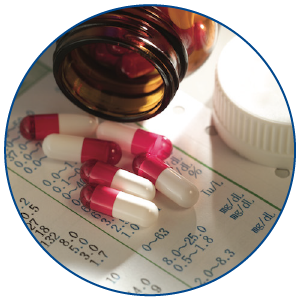
Causes of ED
Mechanism of Erection
Penile erection is managed by two different mechanisms: The first one is reflex erection, which is achieved by directly touching the penile shaft. The second is psychogenic erection, which is achieved by erotic or emotional stimuli. The former uses the peripheral nerves and the lower parts of the spinal cord, whereas the latter uses the limbic system of the brain. In both conditions, an intact neural system is required for a successful and complete erection. Stimulation of penile shaft by the nervous system leads to the secretion of nitric oxide (NO), which causes the relaxation of smooth muscles of corpora cavernosa (the main erectile tissue of penis), and subsequently penile erection. Additionally, adequate levels of testosterone (produced by the testes) and an intact pituitary gland are required for the development of a healthy erectile system. Based on the mechanism of a normal erection, impotence may develop due to hormonal deficiency, disorders of the neural system, lack of adequate penile blood supply or psychological problems. Restriction of blood flow can arise from impaired endothelial function due to the usual causes associated with coronary artery disease.
Nerve Signal Pathway of Erection:
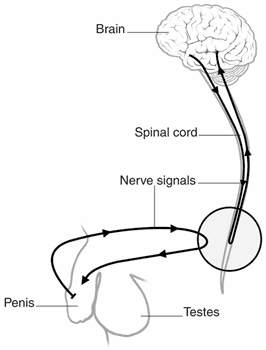
Source: National Institute of Diabetes and Digestive and Kidney Diseases
Anatomy of the Penis:
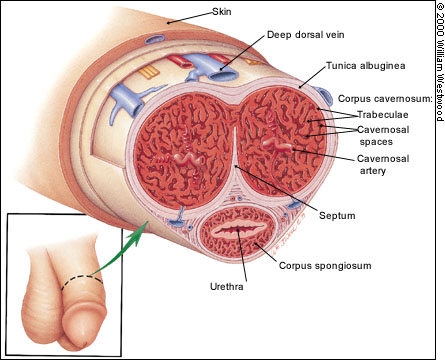
Structural Changes of the Penis before and after Erection:
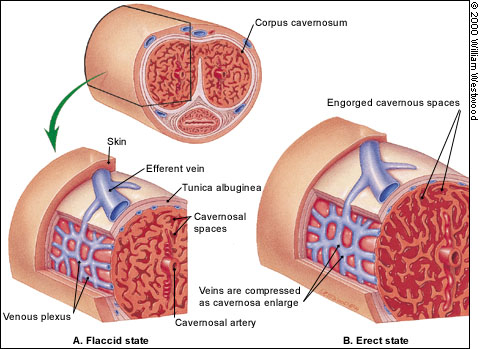
Insufficient rigidity / erectile dysfunction is caused by physiological or psychological factors, or both.
About 80-90% of cases of insufficient rigidity / ED are caused by physiological origin, which are further classified into vascular (related to blood flow) and non-vascular factors. It is estimated that 70% of insufficient rigidity / ED cases may be attributable to vascular diseases alone.
A penis requires a healthy blood supply in order to erect. Even only a minor obstruction will lead to a serious erection problem. This is described as the lack of adequate penile blood supply, which is a result from the following factors:
Source: The National Institute of Diabetes and Digestive and Kidney Diseases
Common Physiological Risk Factors
- Diabetes
- Hypertension
- High Blood Cholesterol
- Cardiac Diseases
- Smoking
- Prostatitis
Poor Overall Circulation:
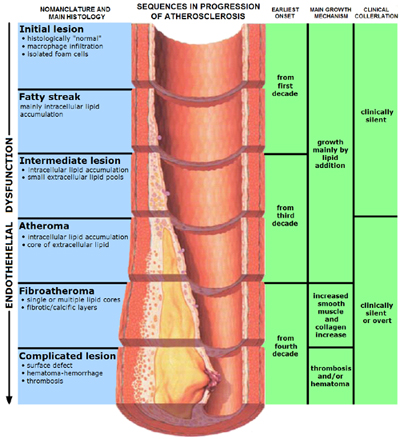
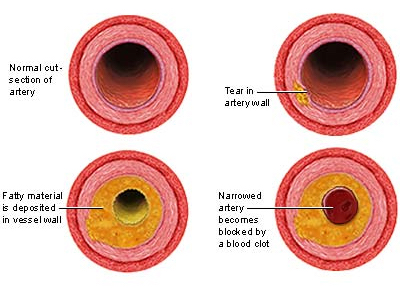
Arterial Blood Vessels of the Penis:
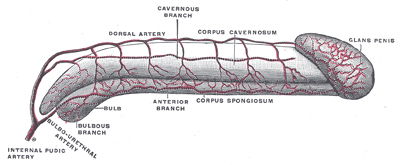
Diabetes
Type 2 Diabetes mellitus occurs when the pancreas does not make enough insulin, or when body tissues cannot utilize insulin effciently, resulting in an abnormally high blood glucose level.
Advancing thirst, tiredness, weight loss, blurred vision and others are symptoms of diabetes. The condition will also lead to insufficient rigidity / erectile dysfunction by inducing damages of blood vessels and nerves involved in erection.
Hypertension
Hypertension is a condition in which the blood pressure is persistently higher than normal (140/90 mmHg), even when you are resting or relaxing.
Smoking, physical inactivity, obesity, stress, excess alcohol intake and a family history of hypertension are risk factors of hypertension. Most people with hypertension do not have any symptoms. According to the Population Health Survey of the Department of Health, 60% of males with hypertension do not know they have the disease. Hypertension is usually diagnosed unexpectedly in a routine health check-up. When severe, hypertension will cause headache, dizziness, and visual problems. Impotence is also one of the symptoms of hypertension. It is because penile arteries are damaged by excessive blood pressure. Normally, these arteries dilate in response to sexual stimulation, allowing more blood to flow into the spongy tissue of the penis to produce an erection. The excessive pressure in these arteries may cause tiny tears, which are subsequently repaired by the body. The healed arteries have thicker walls to better resist the elevated blood pressure. These thicker blood vessel walls, though, will impose extra resistance to blood flow into the erectile tissues of the penis.
Cardiac Disease
Cardiac Disease is one of the main killer diseases among men in Hong Kong, causing 3,442 deaths in 2008. Coronary heart disease accounted for approximately two thirds of all heart-disease-related deaths in men.
Coronary heart disease (CHD) is a type of heart disease due to the occlusion of the coronary arteries. The coronary arteries serve to supply oxygen and nutrients to the heart muscles. When the arteries become narrow and stiff because of fatty plaques, blood supply to the heart will be reduced and the heart muscles will be damaged.
A number of risk factors, including smoking, high-fat diet, physical inactivity, high blood pressure, high cholesterol levels, obesity, diabetes mellitus, stress and family history of coronary heart disease, which may work independently or in combinations, can lead to coronary heart disease.
Smoking
Smoking is associated with insufficient rigidity / erectile dysfunction by damaging the blood circulation system in the penis. As insufficient rigidity / ED is shown to be highly prevalent among smokers in clinical studies, it is hypothesized that quitting smoking can help prevent insufficient rigidity / ED, and improve the condition in insufficient rigidity / ED patients.
Prostatitis
Prostatitis is an inflammation of the prostate gland. It can be sudden and acute, or reoccurring and chronic. This disease is often accompanied by a strong and frequent urge to urinate, difficulty in urinating (hesitant urination often results in only small amount of urine), and / or pain in the lower back or abdomen. Prostatitis can also cause insufficient rigidity / erectile dysfunction due to reduced blood flow.
Other Possible Physical Factors
Other associated physical conditions or causes are less common. These include:
| Neurogenic Disorders | Spinal cord and brain injuries, nerve disorders such as Parkinson’s disease, Alzheimer’s disease, multiple sclerosis, and stroke. |
| Hormonal Disorders | Pituitary gland tumor; low level of the hormone testosterone. |
| Cavernous Disorders | Peyronie’s disease. |
| Metabolic Syndrome | Characterized by belly fat, high unhealthy cholesterol and triglyceride levels, high blood pressure, and insulin resistance. |
| Surgery | Radiation therapy, surgery of the colon, prostate, bladder, which may damage the nerves and blood vessels involved in erection. |
| Medication Caused | Various antihypertensives (medications intended to control high blood pressure) and some drugs that modify central nervous system response may inhibit erection by denying blood supply or by altering nerve activity. |
| Obesity | Men who are obese are much more likely to have insufficient rigidity / erectile dysfunction than men with a normal weight. |
Since insufficient rigidity / erectile dysfunction can be an early symptom of such underlying medical conditions, it is essential for patients to seek prompt diagnosis and treatment.
It is however, not uncommon to see insufficient rigidity / ED in an otherwise completely healthy person, both physically and psychologically. It is postulated that the penile circulation is intrinsically precarious, being an end-artery it may not be surprising that blood flow to the penis be partially occluded as men age. Although this may not cause major health problems, erection problems may arise due to the hindered penile blood flow.
Possible Psychological Factors
Psychological factors are responsible for about 10%-20% of all cases of insufficient rigidity / ED. It is often secondary to an underlying physical cause. In some cases, the psychological effects of insufficient rigidity / ED may stem from childhood abuse or sexual trauma. However, the most common psychological causes of insufficient rigidity / ED include:
| Stress | Stress can be job-related, money-related, or the result of marital problems, among other factors. |
| Anxiety | Once a man experiences unsatisfactory erection, he may become overly worried that the problem will happen again. This can lead to “performance anxiety”, or a fear of sexual failure, which contributes to the consistent insufficient rigidity / ED. |
| Guilt / Low self-esteem | A man may feel guilty that he is not satisfying his partner. |
| Depression | A common cause of insufficient rigidity / ED, depression affects a person physically and psychologically. Depression can cause insufficient rigidity / ED even when a man is completely comfortable in sexual situations. Drugs used to treat depression may also cause insufficient rigidity / ED. |
| Indifference | This may come as a result of age and subsequent loss of interest in sex. |
The Characteristics of Psychological Insufficient Rigidity / Erectile Dysfunction Include:
- Being able to achieve or maintain an erection with one partner but not with another.
- Having strong and lasting erections in the mornings and during masturbation but not during love making.
- Tendency to affect younger men with unstable relationships or unsettling past experiences.
Other Possibilities That Cause Insufficient Rigidity / ED
A variety of risk factors can contribute to insufficient rigidity / erectile dysfunction. They include:
| Getting Older | As many as 80% of men aged 75 and older have insufficient rigidity / erectile dysfunction. Erections may take longer to achieve, may not be as rigid or may take more direct touch to the penis to occur. But insufficient rigidity/erectile dysfunction isn’t an inevitable consequence of normal aging. Insufficient rigidity / erectile dysfunction often occurs in older men mainly because they’re more likely to have underlying health conditions or take medications that interfere with erectile function. |
| Substance Abuse | Chronic use of alcohol, marijuana or other drugs often causes insufficient rigidity/erectile dysfunction and decreased sexual drive. |
| Prolonged Bicycling | Over an extended period, pressure from a bicycle seat has been shown to compress nerves and blood vessels supplying the penis, leading to temporary insufficient rigidity / erectile dysfunction and penile numbness. |



